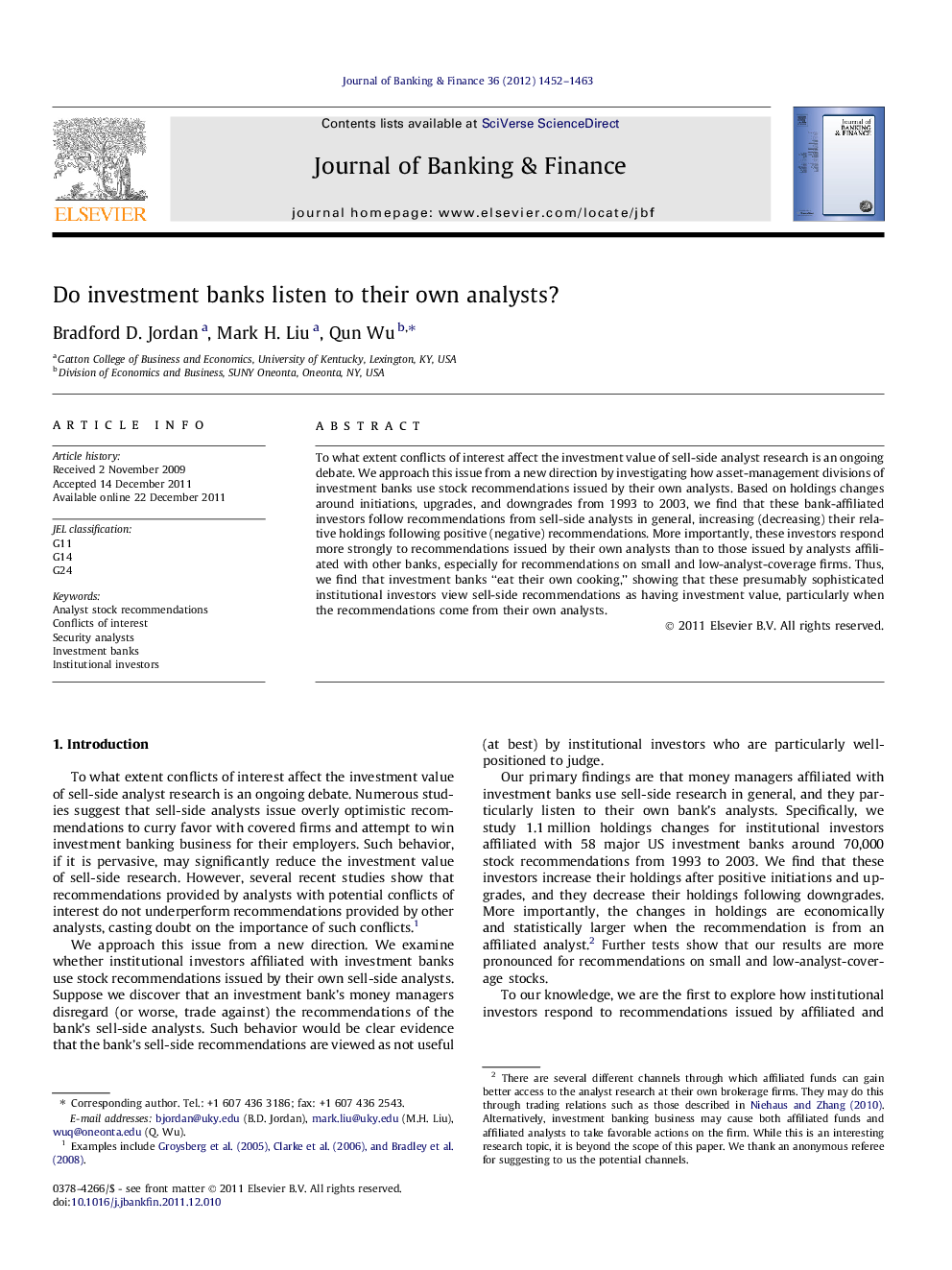| Article ID | Journal | Published Year | Pages | File Type |
|---|---|---|---|---|
| 5090053 | Journal of Banking & Finance | 2012 | 12 Pages |
Abstract
To what extent conflicts of interest affect the investment value of sell-side analyst research is an ongoing debate. We approach this issue from a new direction by investigating how asset-management divisions of investment banks use stock recommendations issued by their own analysts. Based on holdings changes around initiations, upgrades, and downgrades from 1993 to 2003, we find that these bank-affiliated investors follow recommendations from sell-side analysts in general, increasing (decreasing) their relative holdings following positive (negative) recommendations. More importantly, these investors respond more strongly to recommendations issued by their own analysts than to those issued by analysts affiliated with other banks, especially for recommendations on small and low-analyst-coverage firms. Thus, we find that investment banks “eat their own cooking,” showing that these presumably sophisticated institutional investors view sell-side recommendations as having investment value, particularly when the recommendations come from their own analysts.
Related Topics
Social Sciences and Humanities
Economics, Econometrics and Finance
Economics and Econometrics
Authors
Bradford D. Jordan, Mark H. Liu, Qun Wu,
